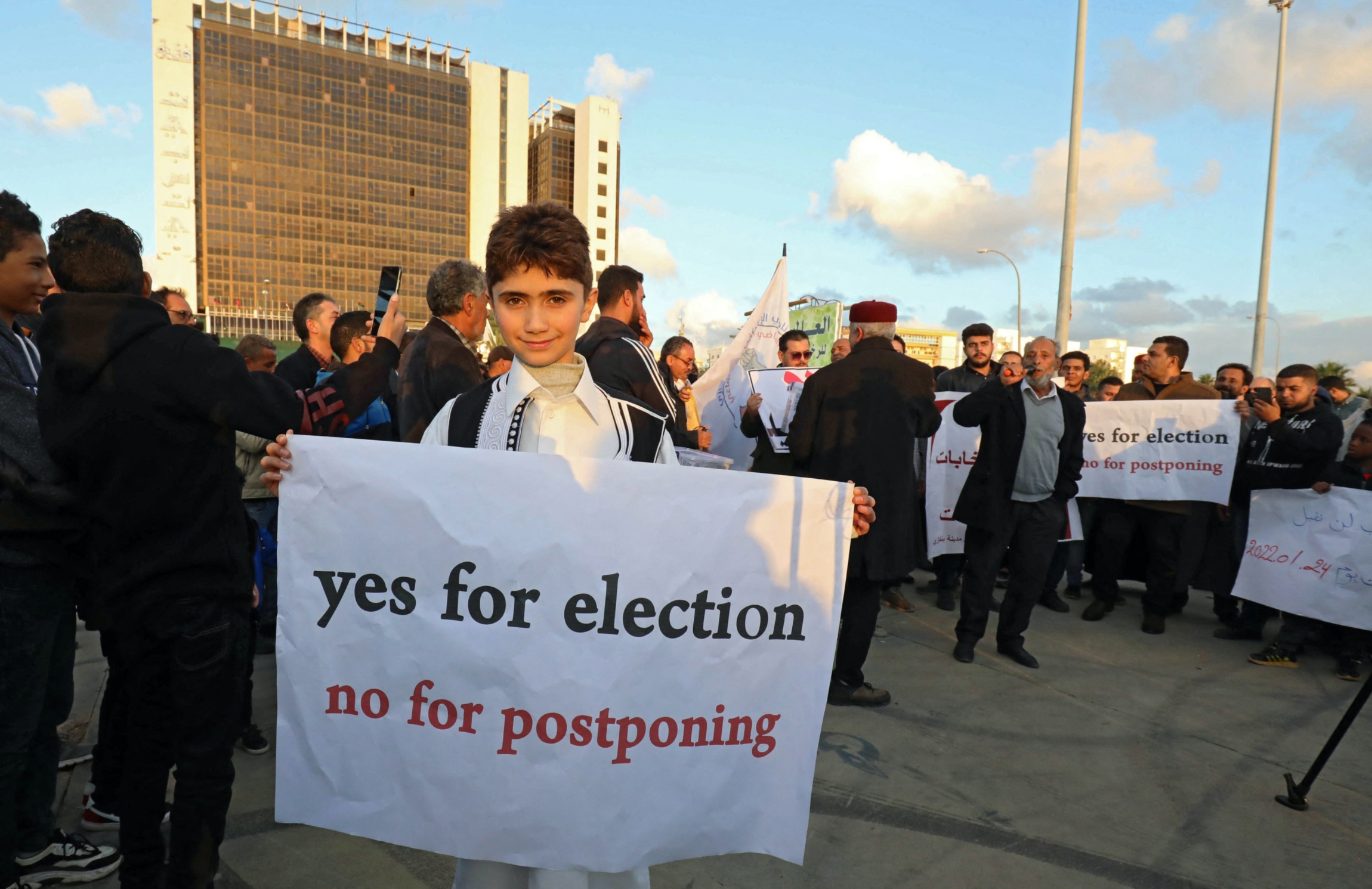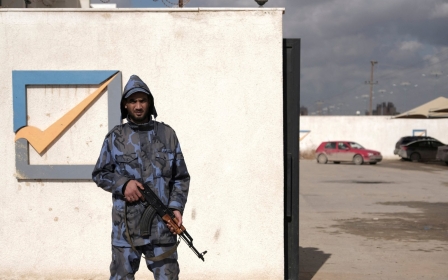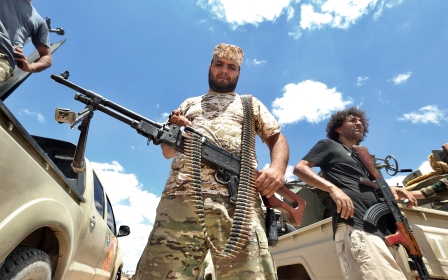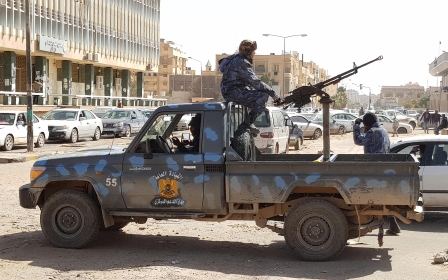Libya's parliament refuses to set new date for presidential election

The Libyan parliamentary committee on Monday refused to fix a new date for the country's first presidential election after it was called off last week amid a multitude of disputes.
The election was originally scheduled for last Friday, but just two days before, the parliamentary committee announced that it would be impossible to hold voting on time.
New MEE newsletter: Jerusalem Dispatch
Sign up to get the latest insights and analysis on Israel-Palestine, alongside Turkey Unpacked and other MEE newsletters
"After consulting the technical, judicial, and security reports, we inform you of the impossibility of holding the elections on the date of 24 December 2021 provided for by the electoral law," the chairman of the committee wrote last week to the head of parliament.
The previously scheduled election was called through an UN-backed roadmap that envisaged simultaneous parliamentary and presidential elections on Libya's independence day - 24 December.
The country's High National Electoral Commission (HNEC), which is charged with handling the practicalities of any vote, suggested pushing the election to 24 January. But on Monday, the committee announced that it would be risky to set a new date at this stage, leaving the fate of the elections unknown.
In its report, the parliamentary committee said the January date was chosen on the basis of "political" considerations, adding that holding an election then "would have the same fate" as that set for last week.
The parliamentary committee recommended laying out "a new, realistic, and applicable roadmap with defined stages, rather than fixing a new date and repeating the same errors," AFP reported.
Divisive figures
Committee president Al-Haid al-Sghayer read the report to members of the parliament and suggested setting up a new committee to draft a revised constitution to replace the one that was scrapped by Muammar Gaddafi in 1969.
The report also called for a reshuffling of the interim government - the Government of National Unity - led by Abdul Hamid al-Dbeibah, whose mandate was set to expire last Friday with the election. The parliament has not yet debated on the proposals.
The electoral commission has yet to announce a finalised list of candidates for the poll, as it was bogged down with court cases against the bid of a number of divisive figures.
Eastern commander Khalifa Haftar was unacceptable to many in western Libya after his 2019-2020 assault on the capital city of Tripoli. Saif al-Islam Gaddafi has been convicted of war crimes by a Tripoli court and is reviled by many of those who fought in the 2011 revolt.
Meanwhile, Dbeibah threw in his name as presidential candidate even though he had pledged not to run when he was appointed as premier.
The speaker of parliament, Aguila Saleh, who is also running for president, issued a law that people argued was not properly passed through the chamber and was drafted to benefit himself.
Before Monday's session, UN envoy Stephanie Williams called on the parliament "to live up to its national responsibilities" and urgently address recommendations from the HNEC "in order to push the electoral process forward".
Several nations have also urged for a new electoral timeline to be put in place sooner rather than later, and have said the current government should stay in place until the election results are announced.
Middle East Eye delivers independent and unrivalled coverage and analysis of the Middle East, North Africa and beyond. To learn more about republishing this content and the associated fees, please fill out this form. More about MEE can be found here.





